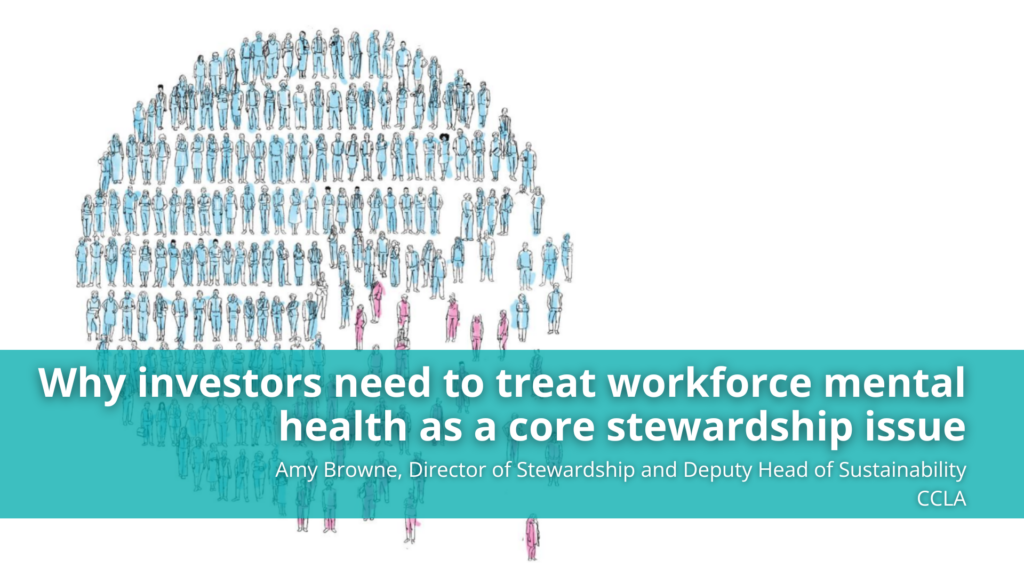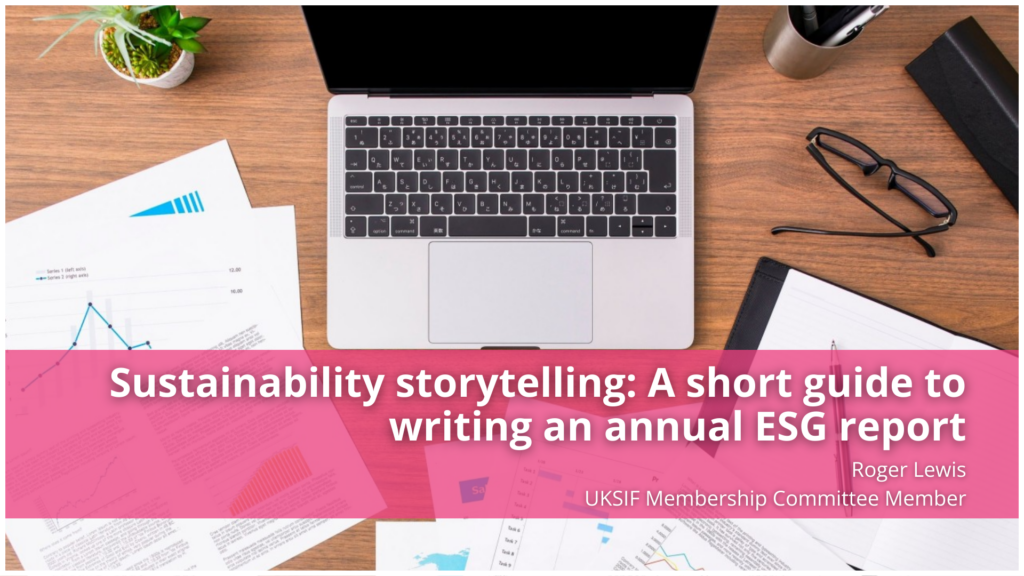The DEI Hype Cycle: Learning to fail forward in a politicised landscape
Anna Elliott, Sustainability Analyst, and Rachael Monteiro, Stewardship and Climate Associate, Foresight Capital Management

Note: The views expressed on these pages are the opinions of their respective author(s) only and do not necessarily reflect the views and opinions of UKSIF.
This website should not be taken as financial or investment advice or seen as an endorsement or recommendation of any particular company, investment or individual. While we have sought to ensure information on this site is correct, we do not accept liability for any errors.
The DEI Hype Cycle: Learning to fail forward in a politicised landscape
Anna Elliott, Sustainability Analyst, and Rachael Monteiro, Stewardship and Climate Associate, Foresight Capital Management
As we have previously noted, Diversity, Equity, and Inclusion (“DEI”), has become a politicised symbol of partisan battles, overshadowing its core purpose of strengthening both organisations and broader society.
In the US especially, actions taken by President Trump are forcing companies to retreat on DEI commitments. For example, Novo Nordisk, a Danish pharmaceutical company held in WHEB’s health theme, is amongst 200 of the largest corporates to have recently dropped senior management gender diversity targets in the US (Figure 1).
According to Novo, ‘changing legal requirements’ – US government investigations into alleged illegal DEI practices in federal agencies, and now also the private sector, – threaten eligibility for Contacted Medicare & Medicaid Services (CMS), which represent over 20% of its US business.
Figure 1: Conversations about DEI between companies and investors are in decline

Source: AlphaSense
And it’s not only legal recourse corporates are wary of. Robby Starbuck, a conservative commentator called for a boycott of John Deere, which is held in an FCM fund, for going ‘woke’ with its DEI-focused policies (Figure 2). Given the brand’s deep cultural resonance in rural, conservative America, Deere subsequently withdrew support for Pride parades, audited internal training materials to remove ‘socially driven content’, and clarified its position on diversity quotas and pronoun policies.
Figure 2: Conservative commentator calls out John Deere for ‘going woke’.

Source: Screenshot from Robby Starbuck’s feed on X taken 25/06/2025
The zone of disillusion
We believe this moment reflects the Gartner Hype Cycle, where enthusiasm for new ideas often gives way to disillusionment before stabilising. The rise of DEI initiatives peaked around 2019–2020, driven by gender quotas and racial justice movements, with major financial institutions backing diversity through policies and practices, marking ‘peak hype’. Mapping Figure 1 to Figure 3 suggests we’re in the disillusionment phase amid backlash.
Figure 3: ‘DEI’ in the Gartner Hype Cycle’s zone of disillusion?

Source: https://www.weforum.org/stories/2023/08/heres-where-we-are-in-the-esg-investing-hype-cycle/
But reaching the “new normal” requires a pragmatic view of the situation. Amidst the ideological push back, the business case for DEI has been further weakened by poorly implemented initiatives, sparking concerns about reverse discrimination, and recent (justified) critiques of the research often used to justify action on DEI.
Letting DEI ‘fail forward’
As a response, scrapping DEI initiatives altogether would be a significant step backwards. Instead, we must learn from where the concept has failed and then to adapt approaches to better achieve the outcomes sought, as these are what matter.
And appetite for ‘DEI 2.0’ is there, even if it needs a rebrand.
Returning to our example of John Deere, its 2025 AGM became somewhat of a battleground with a counter-boycott launched by customers from the National Black Farmers Union and shareholder proposals filled on both sides. But pro-DEI investor sentiment prevailed with almost 30% (including FCM) voting in favour of an independent civil rights audit while anti-DEI proposals drew less than 1.5% support.
Similar outcomes were seen at Disney, Goldman Sachs, Levi’s, and Coca-Cola’s AGMs and one study suggests shareholder support for workforce diversity in this proxy season was as high as 98%.
Leading with the end before the means
For many corporations, improved firm performance has been the primary motivation for pursuing DEI initiatives, with broader societal benefits seen as a welcome bonus.
Encouragingly, a growing body of credible research is now linking firm performance to aspects of cognitive diversity and employee satisfaction, both of which align closely with DEI principles.
These findings are significant in today’s political environment, where legislative efforts are underway to redefine materiality and challenge the compatibility of ESG considerations with fiduciary duty.
Putting it into practice: evolving our engagement on DEI
Given our broader exposure to US listed companies, we’re adapting our engagement strategy.
Despite recent US policy changes, Novo Nordisk’s global DEI approach remains strong. The company has reaffirmed its target of 45% women in senior leadership by 2025 and continues to embed DEI through the ‘Novo Nordisk Way’. We therefore aim to prioritise resources for engagement on DEI elsewhere.
In our post-AGM engagement call with Deere, the company clarified that its inclusion efforts are ongoing but are being reframed to maintain impact while avoiding political sensitivities. This will be a challenging balancing act and we intend to support the company by sharing emerging evidence on how inclusive practices drive performance.
WHEB’s diversity matrix (Figure 4), detailed in a previous blog, remains a useful tool to identify engagement priorities. For example, Xylem, in the WHEB strategy’s Water Management theme, performs well in terms of ‘management priority’, but less so on the key performance indicator of senior gender diversity. We aim to explore how the company will respond to the evolving US context and will share research linking cognitive diversity, psychological safety, and performance.
In contrast, Advanced Drainage Systems, which is held in WHEB’s Environmental Services theme continues to underperform on both gender diversity and management priority. Consequently, we will consider shifting the conversation away from DEI terminology and instead focus on the core principles of high-performing teams, supported by evidence and aligned with long-term value creation.
Figure 4: Mapping gender diversity priorities within the FP WHEB Sustainability Impact Fund

Source: WHEB have identified the ten companies with the lowest gender diversity at board and senior management level, using data from Impact Cubed (x axis). We have also assessed management’s priority in addressing the topic, indicated by related targets, commitments or goals, talent pipeline plans, disclosure of diversity data, previous engagement responses and supply-chain diversity efforts (y axis). The red dotted line marks the WHEB voting policy’s minimum board diversity threshold; the blue line indicates average female representation at board and senior levels in the WHEB portfolio. Data correct as of July 2024.
Conclusion
The current backlash against DEI marks not an end, but a transition. We believe that the route forward lies in focusing less on labels and more on outcomes. As is typical of our approach, ensuring engagement objectives are grounded in evidence-based practices will help us navigate the heightened political challenges characteristic of this period.
In this way we can evolve our strategies to remain effective stewards of long-term value, while staying true to the core purpose of DEI: building better businesses and a more equitable society.
Note: The views expressed on these pages are the opinions of their respective author(s) only and do not necessarily reflect the views and opinions of UKSIF.
This website should not be taken as financial or investment advice or seen as an endorsement or recommendation of any particular company, investment or individual. While we have sought to ensure information on this site is correct, we do not accept liability for any errors.


